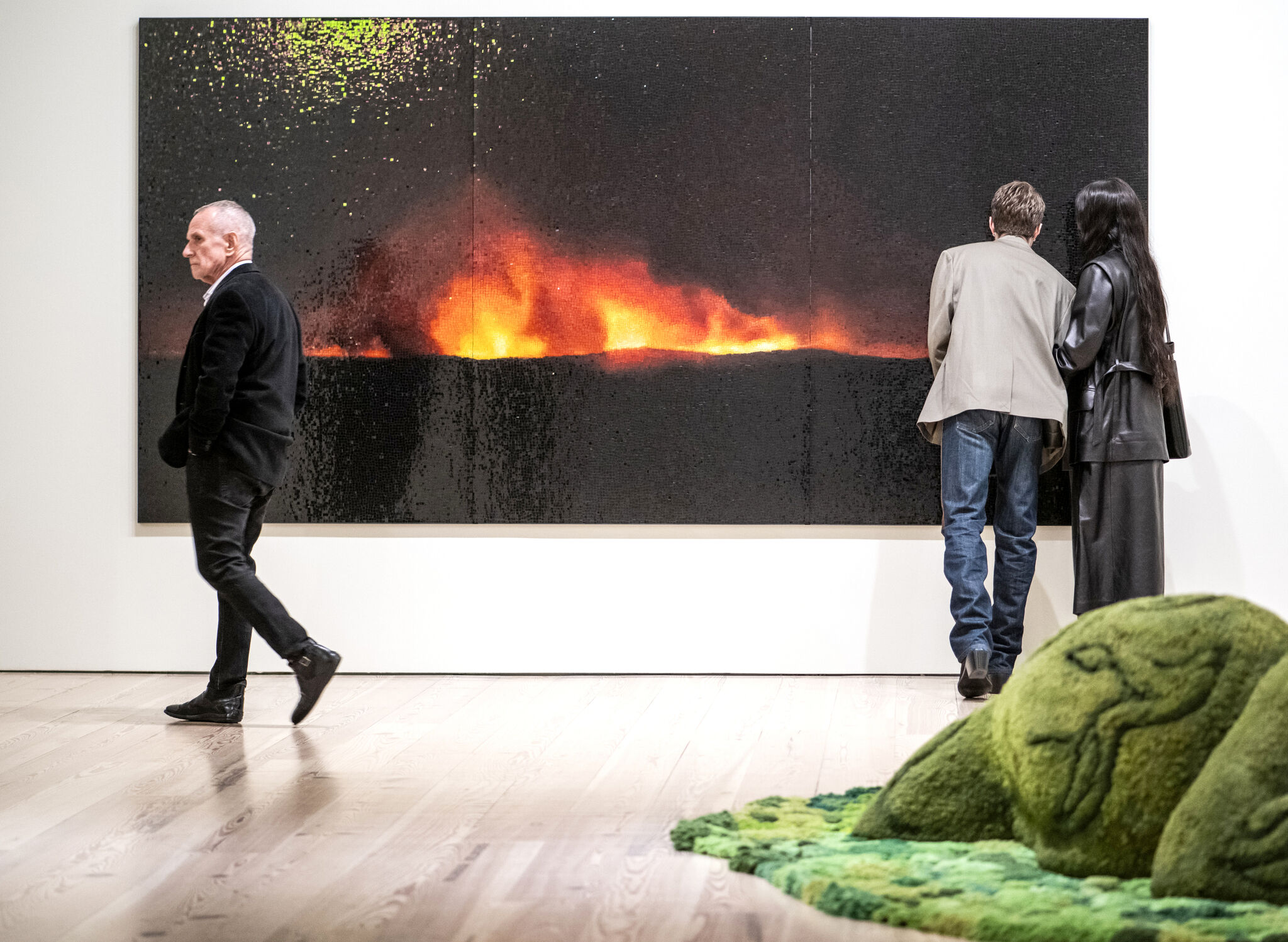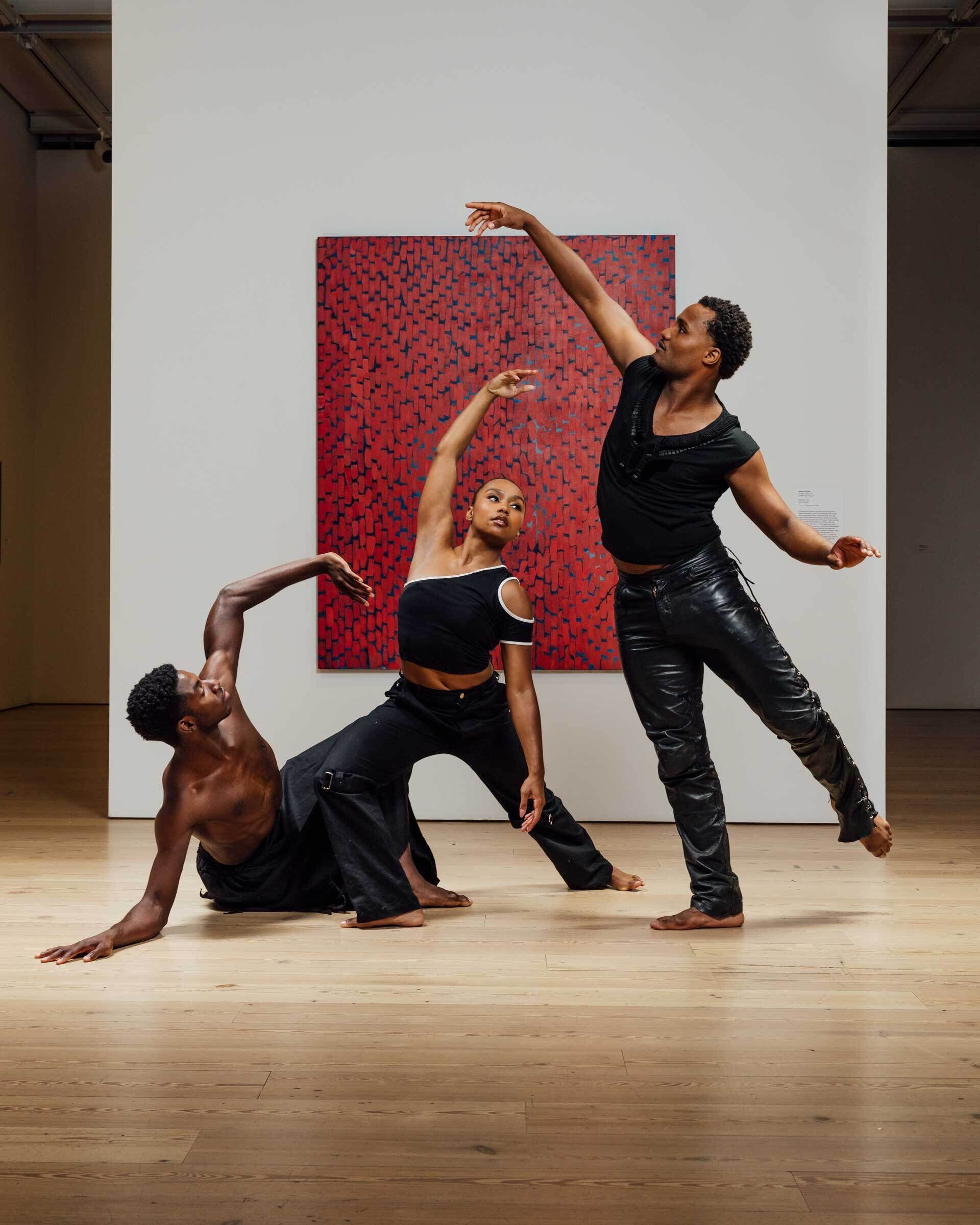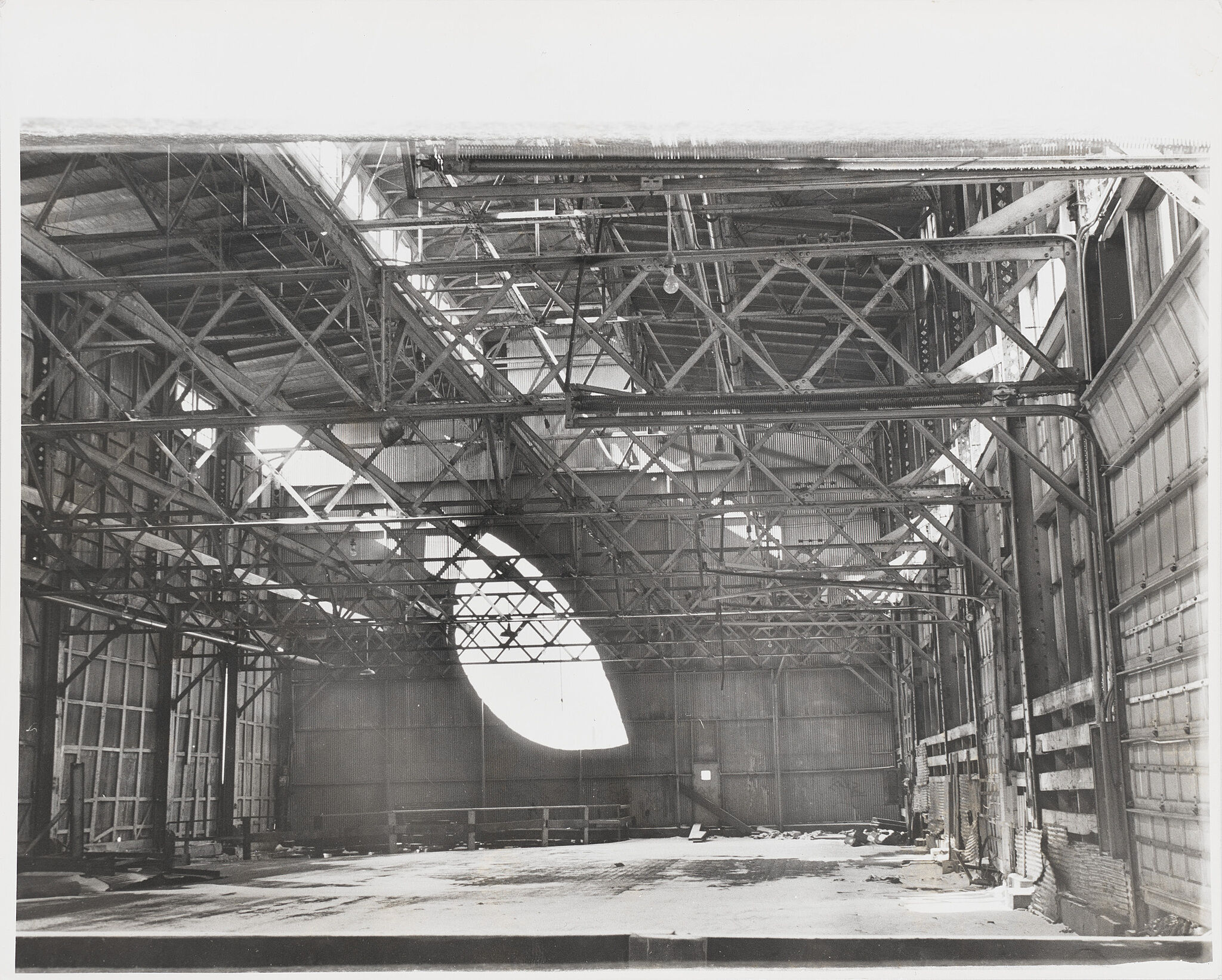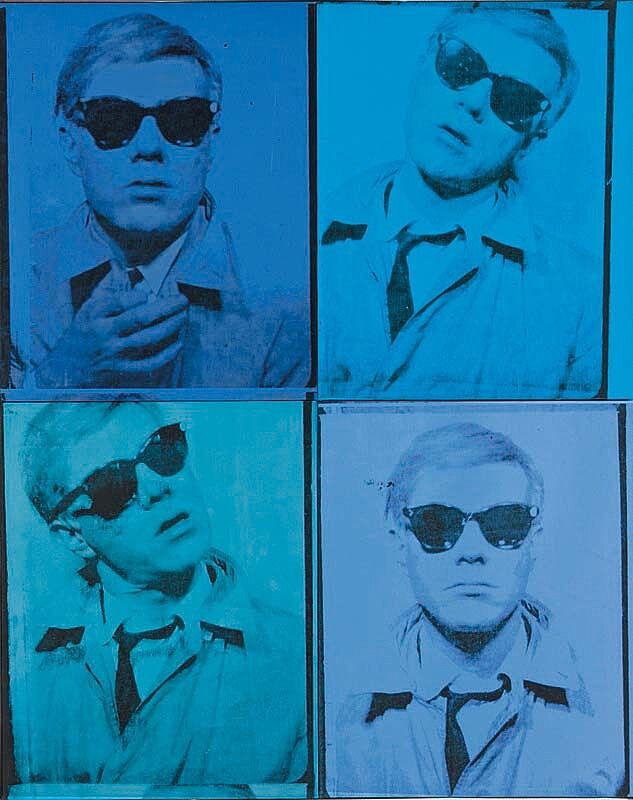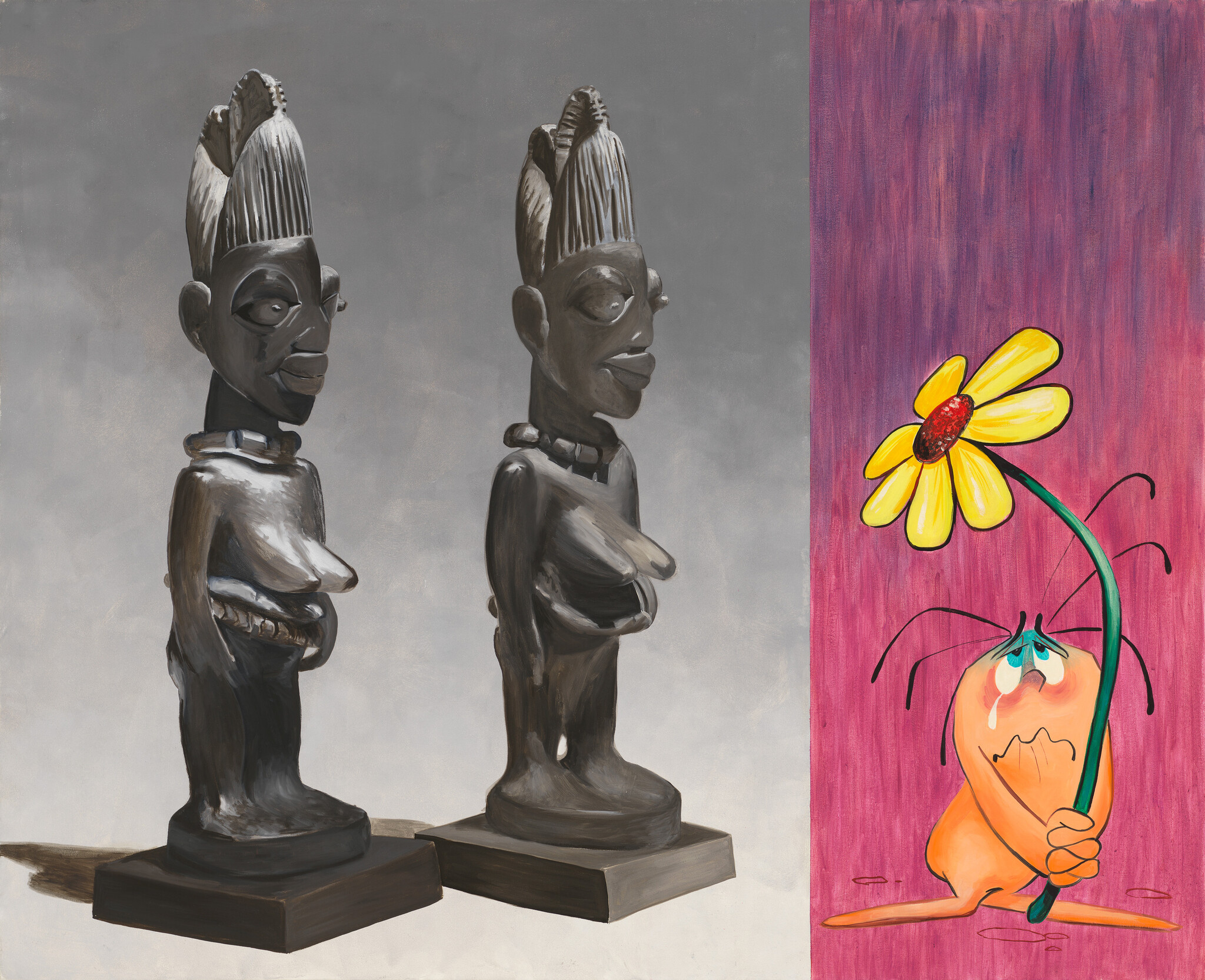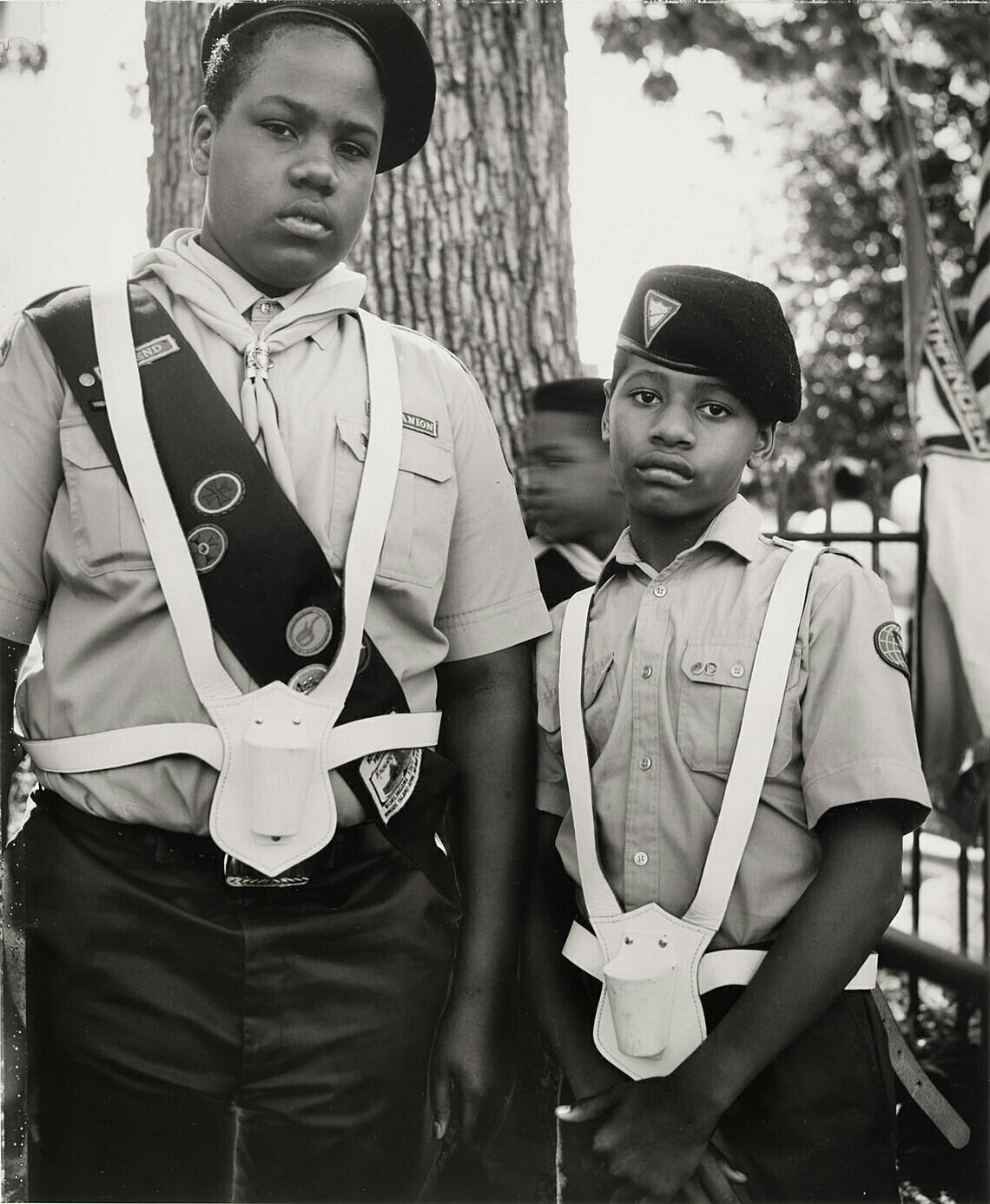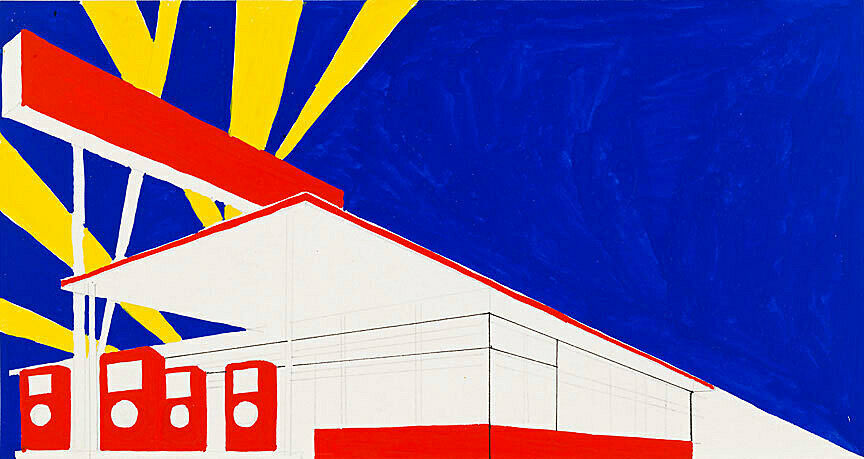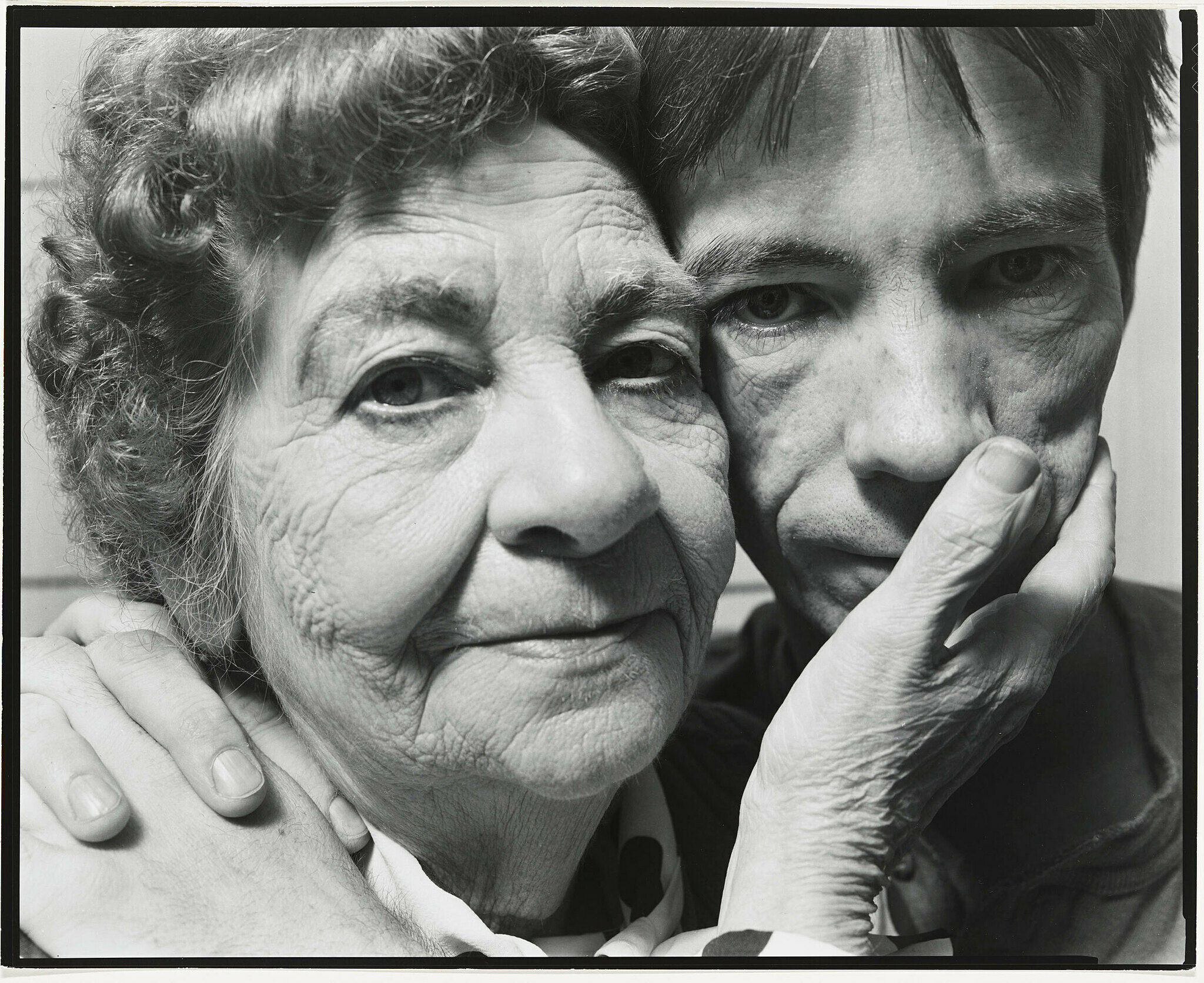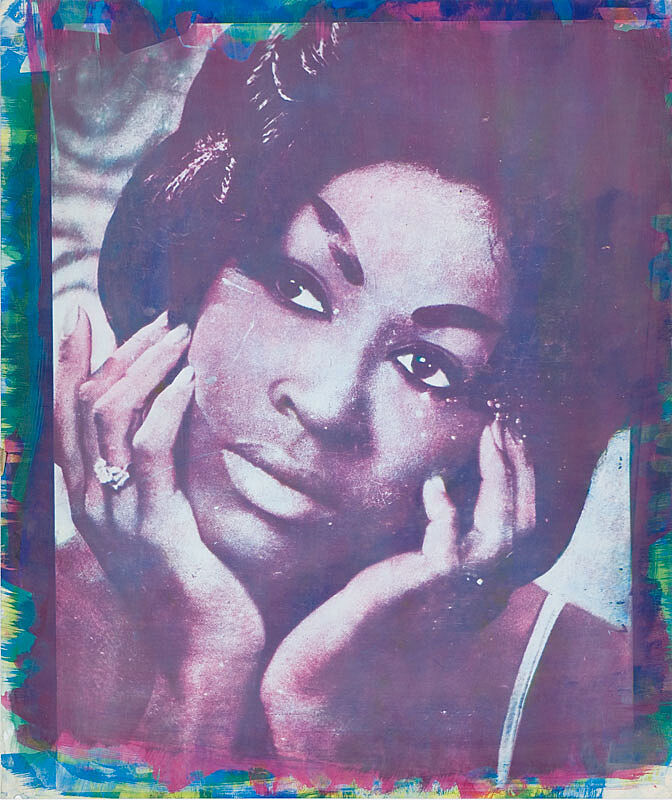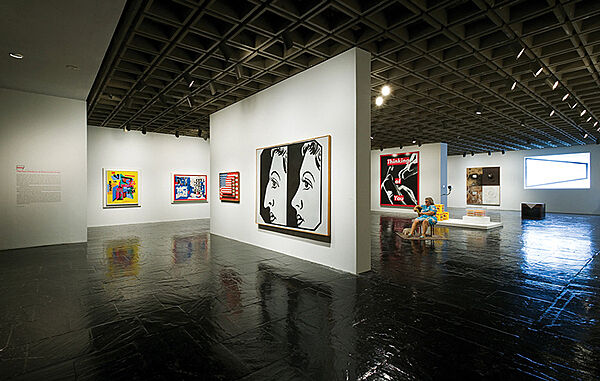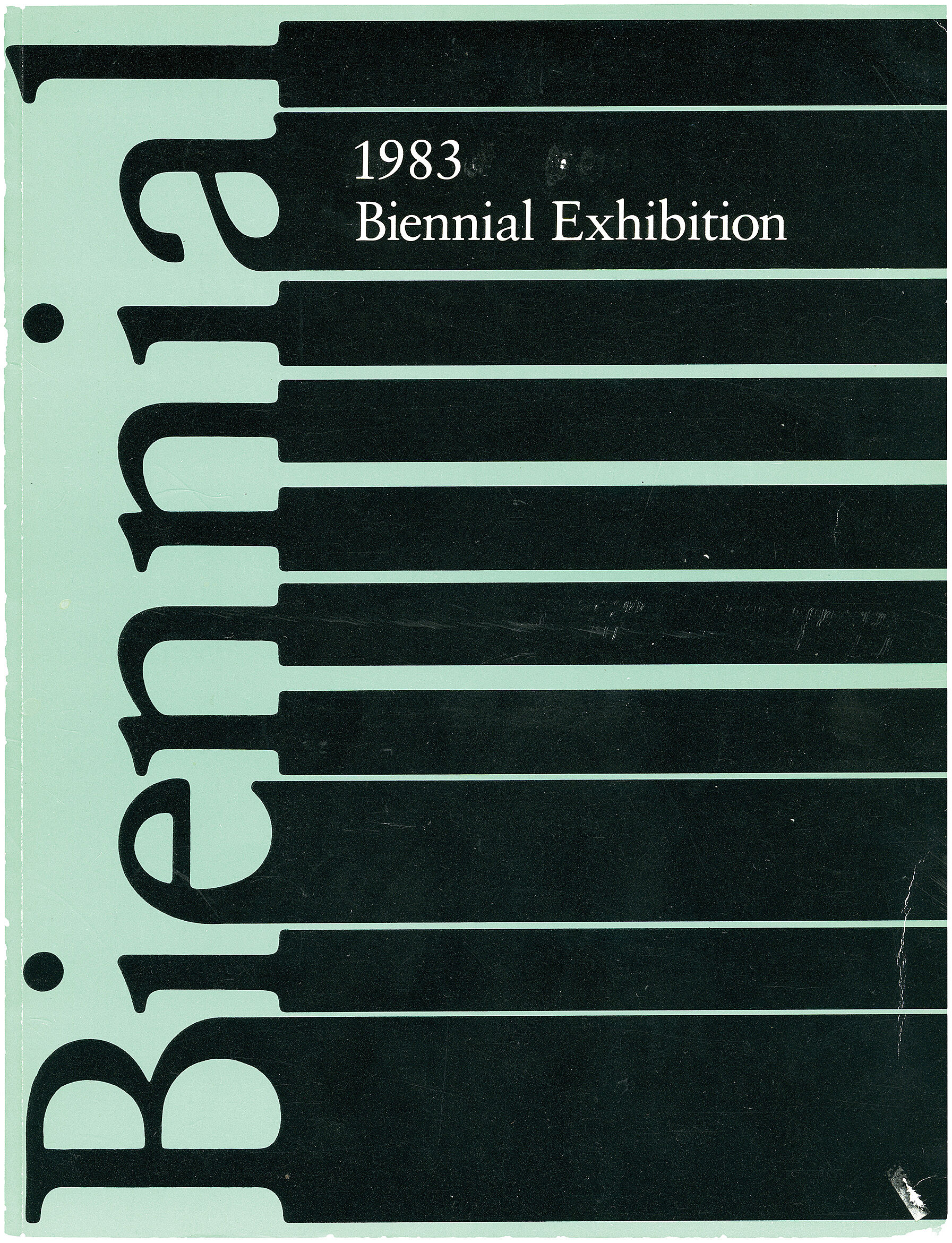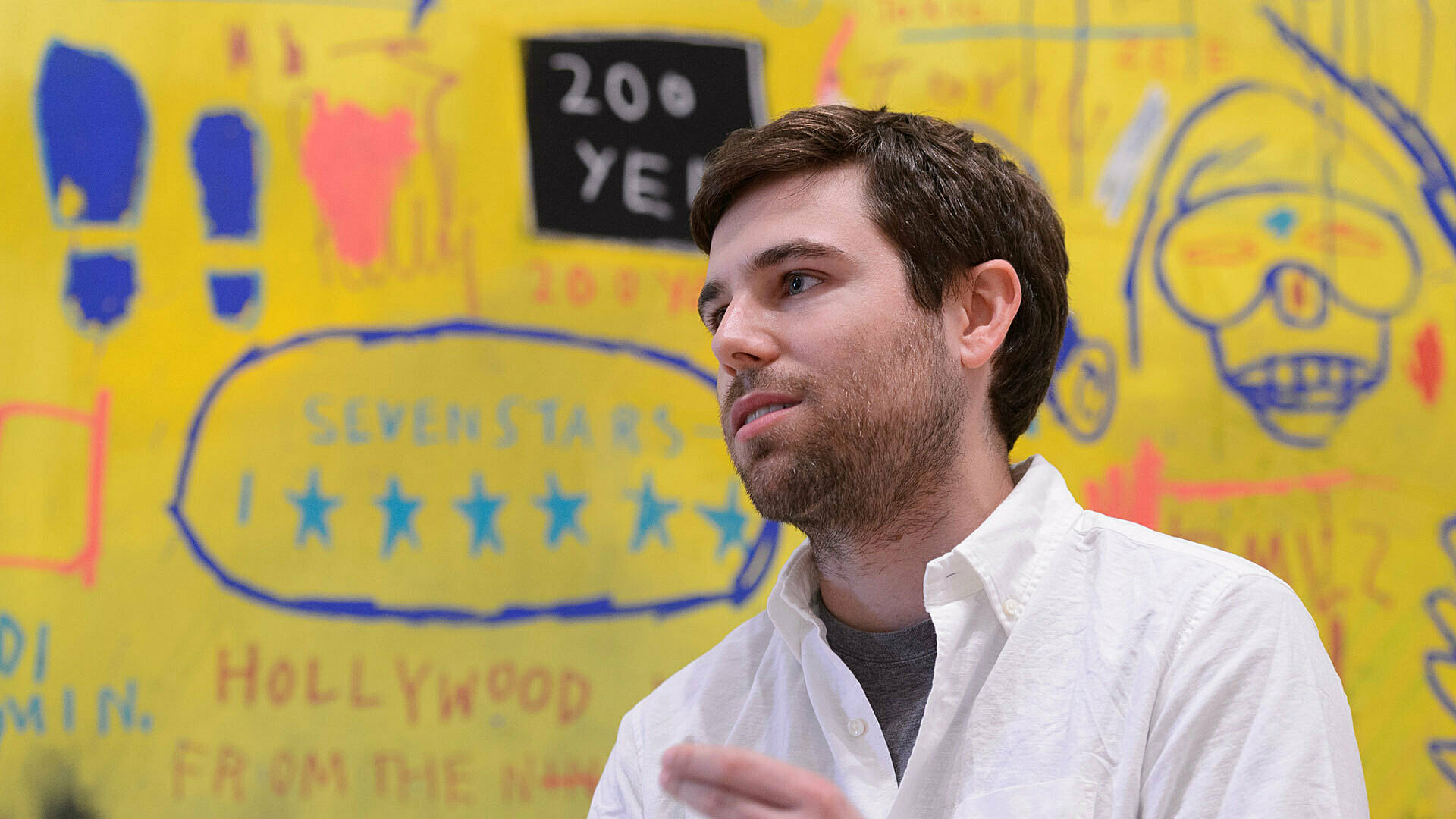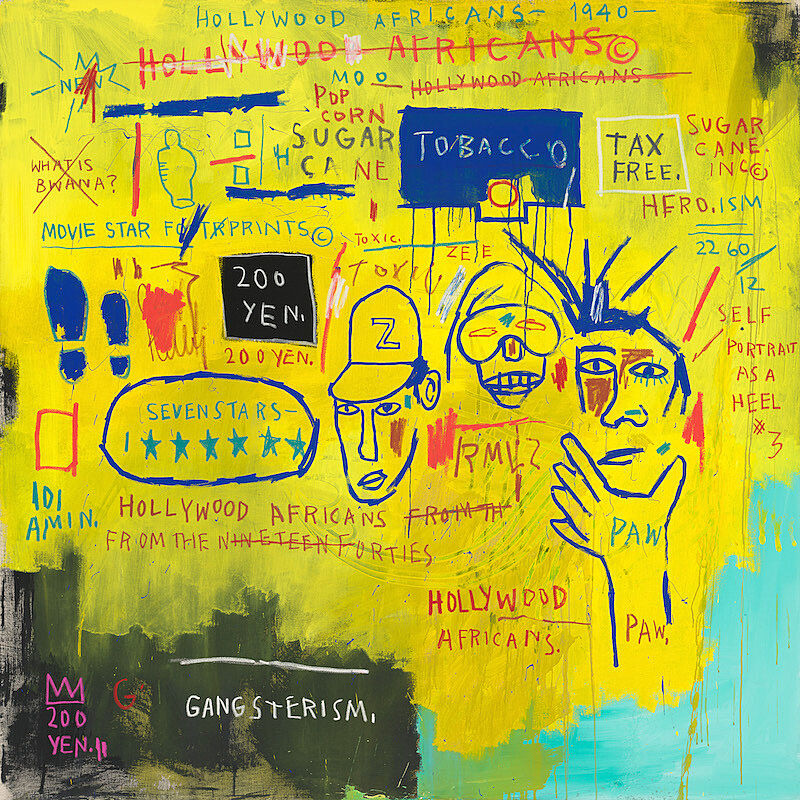Jean-Michel Basquiat
1960–1988
Jean-Michel Basquiat was among a group of young artists in New York who emerged as the worlds of art and music collided and who embraced a new style infused with elements of graffiti and hip-hop culture. He first gained notoriety with cryptic graffiti messages he left across downtown Manhattan, but by 1980 Basquiat was working on canvas, using paint sticks to draw symbols such as crowns, halos, and fragments of the human anatomy.
While on an extended visit to California, Basquiat painted Hollywood Africans for a spring 1983 show of his work at a Los Angeles gallery. At the center of the canvas is a portrait of the artist with his friends and fellow artist-musicians Toxic and Rammellzee, who had accompanied him to the West Coast. Basquiat is recognizable at the far right by his dreadlocks; the numerals 12, 22, and 60—the date of his birth—are inscribed nearby.
With phrases such as “HOLLYWOOD AFRICANS FROM THE NINETEEN FORTIES” and “WHAT IS BWANA?” scrawled across the canvas, Basquiat is questioning the historical depiction of Africans and African Americans in films. (Bwana refers to the Swahili word for master or boss, the term local tribespeople in old Hollywood movies deferentially called the white safari leaders.) Yet Basquiat is also referencing himself and his compatriots. Just to the right of his own likeness he wrote “SELF PORTRAIT AS A HEEL #3.” Basquiat seems painfully aware of the derogatory manner in which people of African descent have been depicted in Hollywood, and the context that history provided for his own reception and burgeoning presence as an artist visiting Los Angeles.
Dana Miller and Adam D. Weinberg, Handbook of the Collection (New York: Whitney Museum of American Art, 2015), 57.
Introduction
Jean-Michel Basquiat ( BAH-skee-AH(T), French: [ʒɑ̃ miʃɛl baskja]; December 22, 1960 – August 12, 1988) was an American artist who rose to success during the 1980s as part of the neo-expressionism movement.
Basquiat first achieved notoriety in the late 1970s as part of the graffiti duo SAMO, alongside Al Diaz, writing enigmatic epigrams all over Manhattan, particularly in the cultural hotbed of the Lower East Side where disco, punk, and street art coalesced into early hip-hop culture. By the early 1980s, his paintings were being exhibited in galleries and museums internationally. At 21, Basquiat became the youngest artist to ever take part in Documenta in Kassel, Germany. At 22, he became one of the youngest to exhibit at the Whitney Biennial in New York. The Whitney Museum of American Art held a retrospective of his artwork in 1992.
Basquiat's art focused on dichotomies such as wealth versus poverty, integration versus segregation, and inner versus outer experience. He appropriated poetry, drawing, and painting, and married text and image, abstraction, figuration, and historical information mixed with contemporary critique. He used social commentary in his paintings as a tool for introspection and for identifying with his experiences in the black community, as well as attacks on power structures and systems of racism.
Basquiat died at the age of 27 in 1988 of a heroin overdose. Since then, his work has steadily increased in value. In 2017, Untitled, a 1982 painting depicting a black skull with red-and-yellow rivulets, sold for a record-breaking $110.5 million, becoming one of the most expensive paintings ever purchased.
Wikidata identifier
Q155407
Information from Wikipedia, made available under the Creative Commons Attribution-ShareAlike License . Accessed February 3, 2026.
Introduction
American painter and draftsman rapidly rose to fame in the 1980s with his graffiti and more conventional paintings on canvas and paper. While still unknown, he would spray paint cryptic phrases on buildings under the name 'Samo'. Basquiat's paintings and drawings were influenced by commercial art and popular imagery. He frequently used textual elements in his work that provided social commentary based on stereotypical black images and events. In 1983 he met Andy Warhol, with whom he collaborated. Basquiat died of a drug overdose in 1988. American artist.
Country of birth
United States
Roles
Artist, cartoonist, collagist, graffiti artist, illustrator, installation artist, muralist, musician, painter, sculptor
ULAN identifier
500093239
Names
Jean-Michel Basquiat, Jean-Michael Basquiat, Jean Michel Basquiat, SAMO, Samo
Information from the Getty Research Institute's Union List of Artist Names ® (ULAN), made available under the ODC Attribution License. Accessed February 3, 2026.

